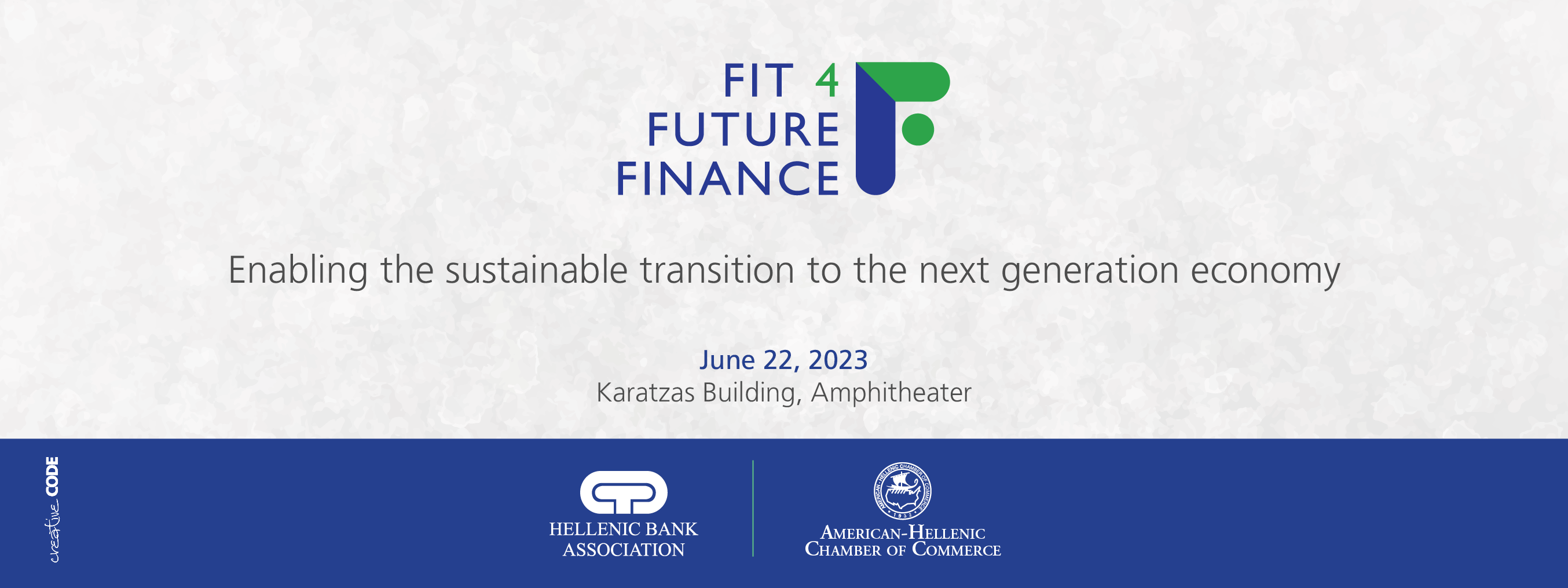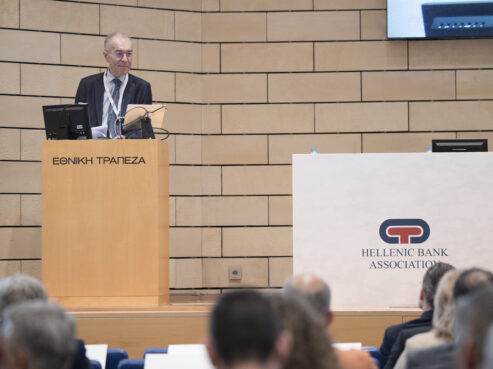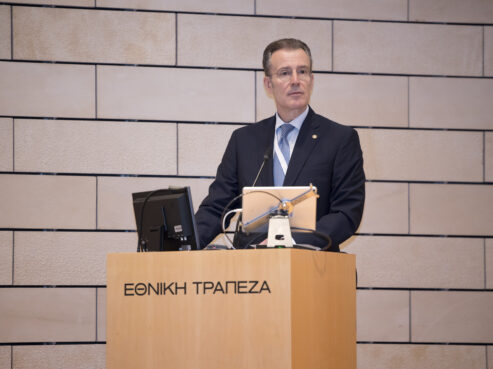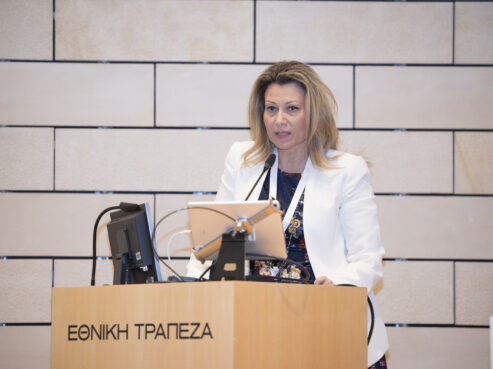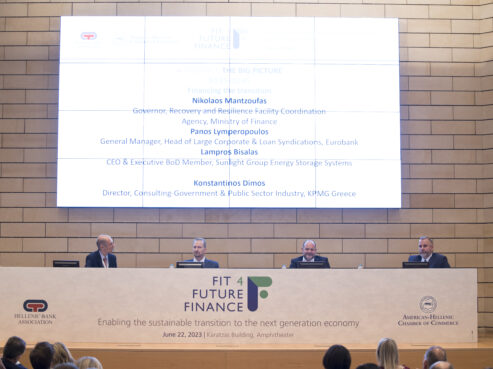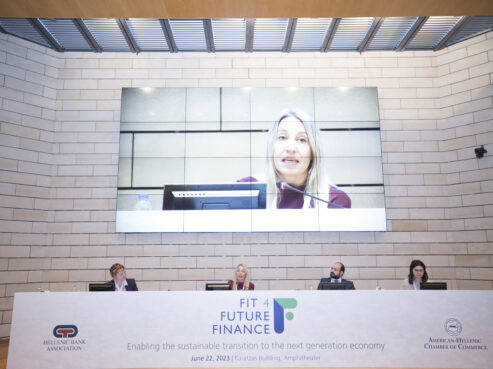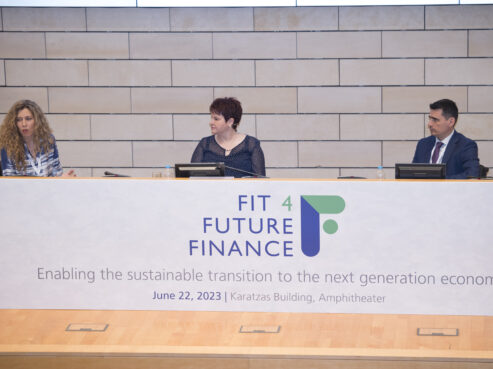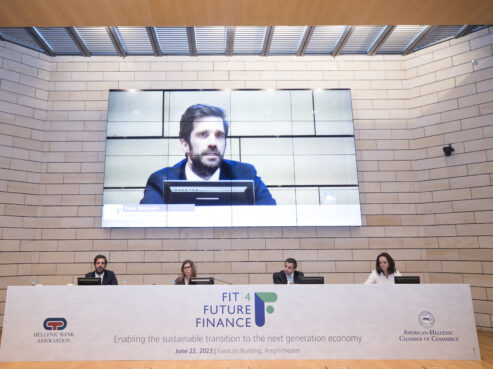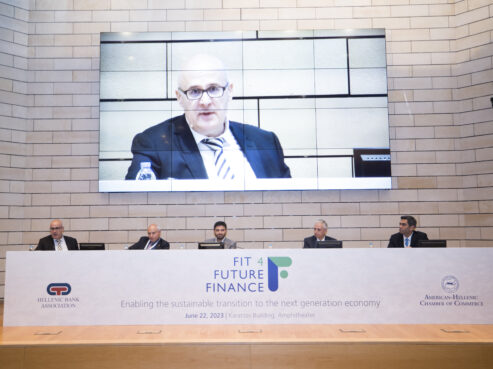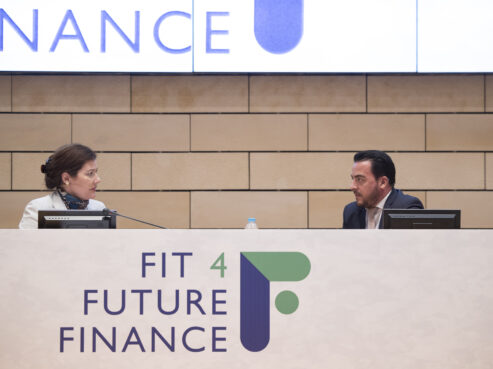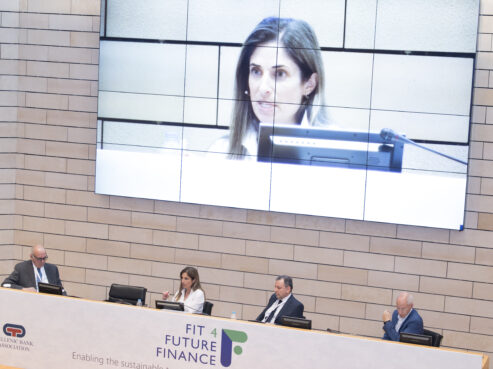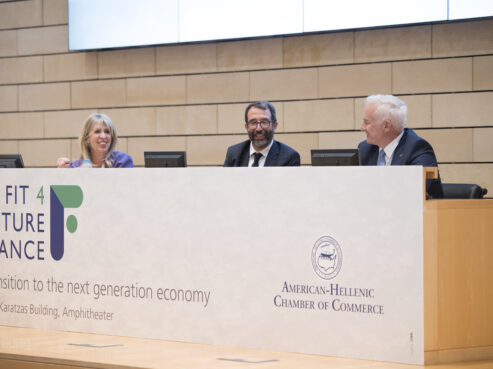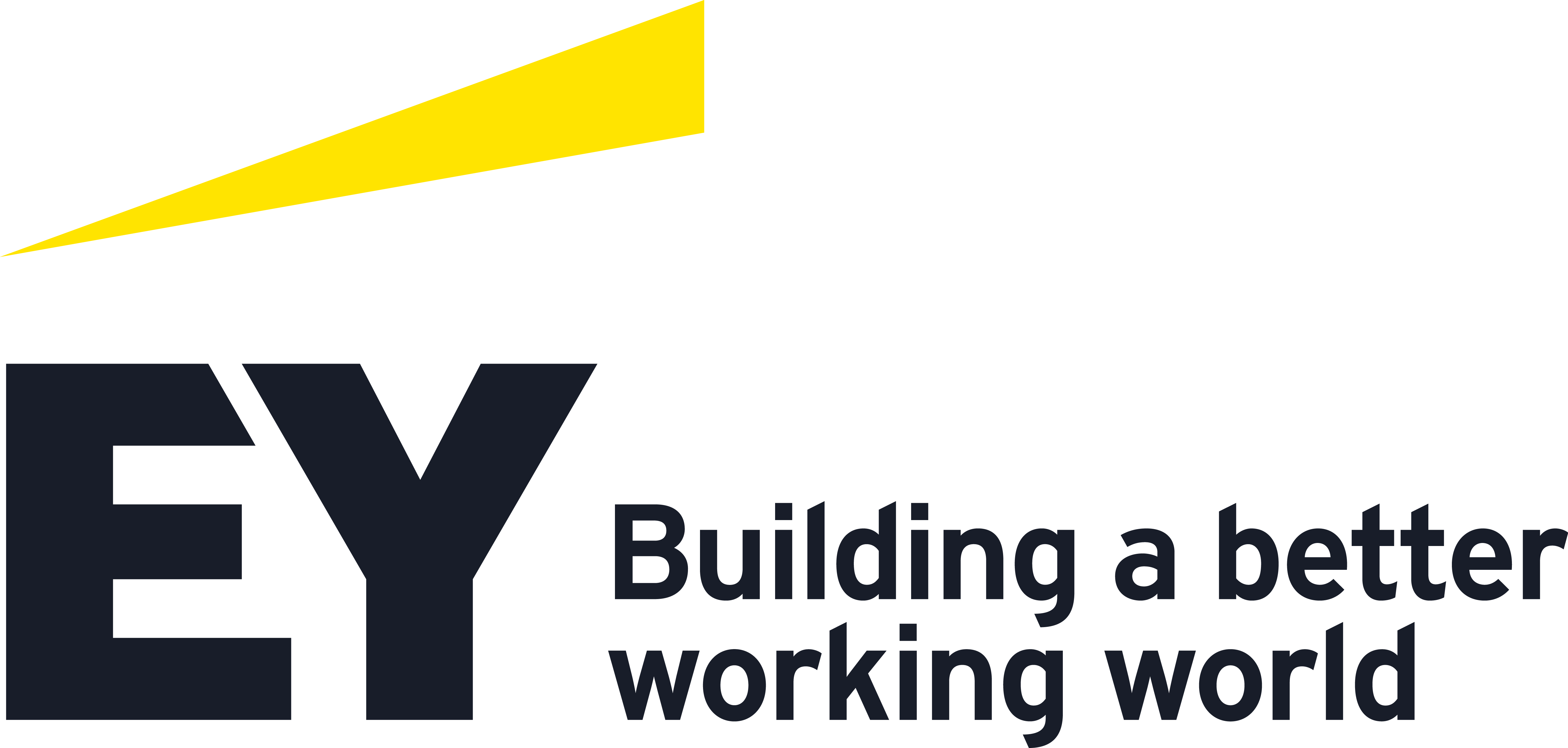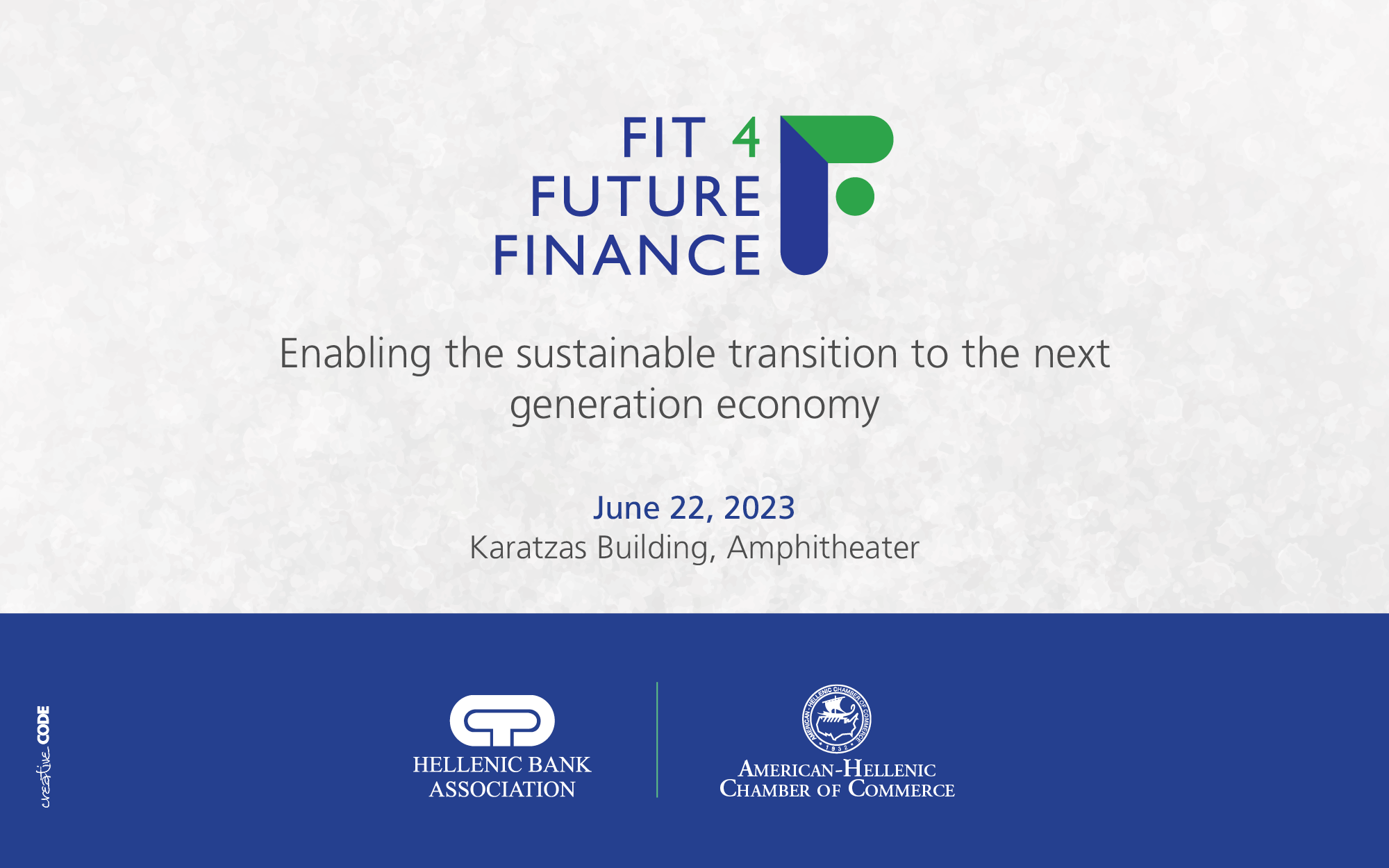
The Hellenic Bank Association and the American-Hellenic Chamber of Commerce convened the Fit4Future Finance: Enabling the sustainable transition to the next generation economy conference on June 22, 2023, at the Karatzas Building (Megaron Karatzas), Amphitheater.
Fit4Future Finance aimed to connect the Greek banking system with the business community to highlight the challenges and opportunities that accompany the international trend for sustainable financing, as well as the integration of ESG criteria into the core strategy and development of enterprises.
Key conference highlights included:
Vasileios Rapanos, Chairman, Hellenic Bank Association
The financial sector in our country has incorporated the ESG criteria. The goal is, as per the European Green Deal, to make Europe the first climate neutral continent by 2050, successfully completing the so-called green transition.
Nikolaos Bakatselos, President, American-Hellenic Chamber of Commerce
The question is whether we will react in time and before the effects of the climate crisis are irreversible. The question is whether all of us – the Greek business community – can ensure the sustainability and competitiveness of our economy in the future.
Vassiliki Lazarakou, Chair, Hellenic Capital Market Commission
To properly prepare for the green transition, the ESG criteria, and everything the transition entails – cost, risks, etc. – must first be fully understood by the business community.
Financing the transition
Nikolaos Mantzoufas, Governor, Recovery and Resilience Facility Coordination Agency, Ministry of Finance
Panos Lymperopoulos, General Manager, Head of Large Corporate & Loan Syndications, Eurobank
Lampros Bisalas, CEO & Executive BoD Member, Sunlight Group Energy Storage Systems Moderator: Konstantinos Dimos, Director, Consulting-Government & Public Sector Industry, KPMG Greece
Businesses have accelerated their investments with a focus in the areas of green and digital transition and therefore we observe a high absorption rate in terms of Recovery and Resilience Facility (RRF) loans. And the banks are responding and are cooperating closely with many businesses to find the most suitable financial plan that fits their needs.
Aligning with Paris Agreement: Challenges for Europe-Opportunities for Greece
Maya Hennerkes, Director, Green Financial Systems, Climate Strategy and Delivery, EBRD Lefteris Charalambous, Partner, McKinsey & Company
Chryssanthi Berbati, Head of Group Business Planning, IR & ESG, Piraeus Bank
Moderator: Katerina Ronga, Partner, Risk Partner, Sustainability & Climate Leader, Deloitte
The Paris Agreement, as a legally binding international treaty on climate change, represents the most important financial and environmental commitment to date. It’s not just another compliance issue. It’s the driver for environmental, social, and financial sustainability. For a business to successfully adopt a green methodology – and be Paris aligned – there is still a lot of ground to break in terms of new technology and investments. Financial institutions play a large role in that so as to meet the zero goal by 2050.
Global sustainability risks are local business opportunities
Vasilis Tsaitas, Group Chief Financial Officer, HelleniQ Energy Holdings
Theresa Messari, General Manager, COO/CFO, PRODEA Investments
Moderator: Kiara Konti, Partner, Climate Change and Sustainability Services Leader – Central, Eastern and Southern Europe and Central Asia (CESA), EY
As much as we need a change in mindset, we need a different strategy and business plan, specialized personnel, and more investments in platforms and systems to help us with our green transition. Now companies often find it difficult to generate the data that is necessary for ESG reporting and for attracting the green transition related funds.
The transition of banking: ESG risk into everyday business
Dimitris Kazazoglou-Skouras, Group ESG Coordinator, Alpha Services & Holdings
Theodora Antonakaki, Director, Climate Change and Sustainability Centre, Bank of Greece Angelica Patrouba, Corporate Affairs & Sustainability Director, Coca-Cola HBC Greece & Cyprus
Moderator: Panos Takopoulos, Partner, Financial Services Advisory, PwC Greece
We have evolved from the era of mere Corporate Social Responsibility. Today the positive impact criterion has to penetrate all aspects of a company in the form of ESG. Companies are nevertheless concerned about the risks that their green transition might entail. Most of them are in the process of integrating ESG into their company’s strategy and consider further investing in human resources in the context of ESG as key for the future.
The changing map of sustainable finance for SMEs
Ernestos Panayiotou, General Manager Transformation, Strategy & International Activities, National Bank of Greece
Achilleas Angelopoulos, CEO, KYKNOS
Agis Kothalis, President and CEO, Νorthern Greece Ceramics (KEBE S.A.)
Nikolaos Mavrikos, Member of the Board, Piraeus Chamber of Commerce and Industry Moderator: Panagiotis Habesis, Head of Development Programs Department & ESG Unit, Hellenic Bank Association
The green transition is not a choice. And it is also not just a typical obligation we have against ESG criteria. It is an obligation to society and our sustainability. And aside from all the things inexplicably mentioned in the ESG guidebook, we also need to take care of a few more vulnerabilities, like eliminating the red tape for businesses and changing our general mindset.
Impact investing: A niche market or the future of finance
Kostis Tselenis, President, Hellenic Impact Investing Network & Managing Partner, Swiss Impact Office
Moderator: Christina Papanikolopoulou, Partner, Zepos & Yannopoulos
Impact investing refers to investments that are made into businesses and organizations with the intention to generate a measurable, beneficial social and environmental impact, as well as a financial return. Therefore, impact investing is a methodology and can work with the necessary adjustments in any sector.
The business leaders’ perspective: ESG & planning for the next decade
Philippa Michali, Chairwoman of the BoD & CEO, NN Hellas
Haris Broumidis, Chairman & CEO, Vodafone Greece
Yanni Paniaras, Executive Director, Europe, TITAN Cement Group
Moderator: Efthimios Vidalis, President of the Executive Committee, SEV Hellenic Federation of Enterprises
Environmental impact, products and investments are at the core of ESG strategy. Yet ESG is not just a checklist so a company can get funding. It is the starting point for a business and not the end stop. So, once a company enters the ESG mentality, the issues of inclusion and diversity must also be addressed.
Closing remarks
Charoula Apalagaki, Acting General Manager, Hellenic Bank Association
We will live along with ESG for at least the next two decades. As far as Greece is concerned, after a long period of subsequent crises, we are now mature to embrace the change in mentality and we are optimistic.
Elias Spirtounias, Executive Director, American-Hellenic Chamber of Commerce
All major organizations have an obligation to imprint the ESG mentality and the purpose-driven business model on society.
Information: Angela Boyatzis, a.boyatzis@amcham.gr, 210 699.3559, ext. 21


